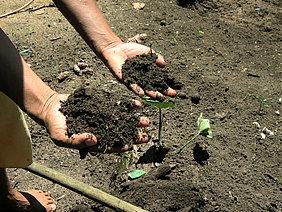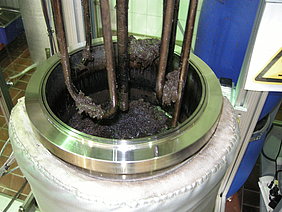Oct 21, 2015: The scientific collaboration between ATB, University of Oldenburg and the Brazilian Embrapa aims at developing soil/biochar-systems that will enable a long-term carbon sequestration as well as an increased soil fertility.
The scientific approach of the bilateral cooperation addresses an innovative strategy for soil management. Analysing ancient anthrosol profiles such as the Terra Preta of the Amazonian region is to supply a better understanding of how the soil application of thermochemically treated biomass will improve soil organic matter.
Analysing the anthropogenic, carbonaceous soils including ancient Anthrosols (Sambaquis) from the Brazilian coast of the State Rio de Janeiro will increase the knowledge of physico-chemical characteristics of such soils. Sambaquis soil samples will be analyzed in Germany and compared with biochars deriving from thermochemical conversion of biomass and organic residues. By optimisation of the process conditions (kind of feedstock, temperature, chemical treatment) different biochars will be obtained and characterised similar to those from Sambaquis soils.
ATB, the University of Oldenburg, and Embrapa Solos, the Brazilian soil research center in Rio de Janeiro, are leading institutes in the field soil science and the carbonisation of biomass. Their collaboration of will broaden the underlying scientific knowledge of a new and contribute to sustainable material flow management.
The German Research Foundation (DFG) supports the scientists in developing their research project for 12 months within the framework of international research collaboration between Germany (DFG) and Brazil (FAPERJ). Workshops and mutual scientific exchange will be funded.
Contact: Dr. Jürgen Kern


